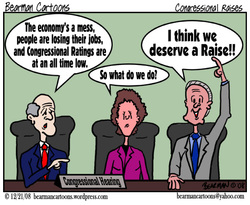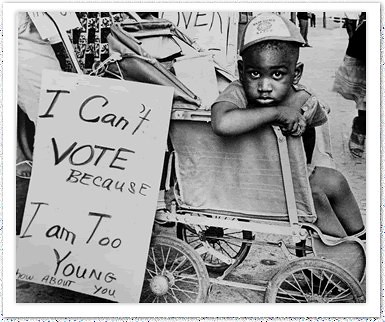Originally proposed Sept. 25, 1789. Ratified May 7, 1992.
No law, varying the compensation for the services of the Senators and Representatives, shall take effect, until an election of representatives shall have intervened.
The 27th Amendment states
that no Law that would pay Senators and Representatives more or less
in income will be allowed to happened until after another election.
This amendment took almost 200 years after its proposal to be
ratified due to the Supreme court case of Coleman v. Miller where the
court ruled that If an amendment had an unspecified date then the
state legislatures could approve the amendment at any time.




Congress gets to change their pay as long as its after the next election.




